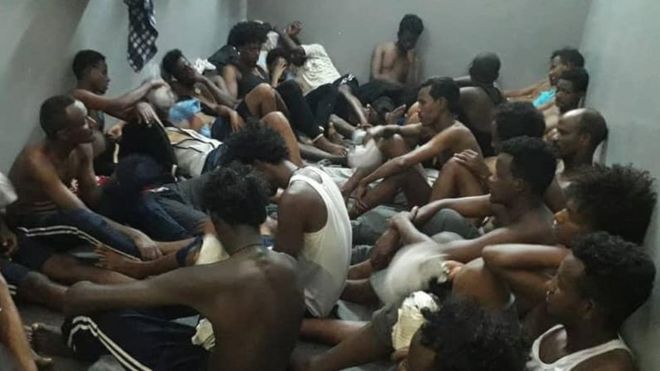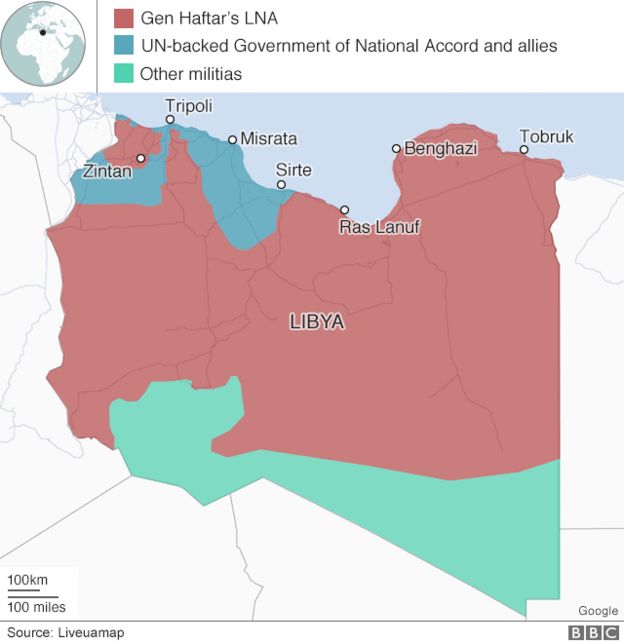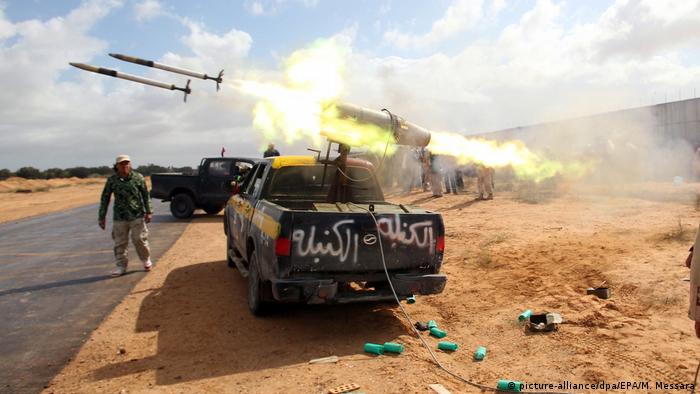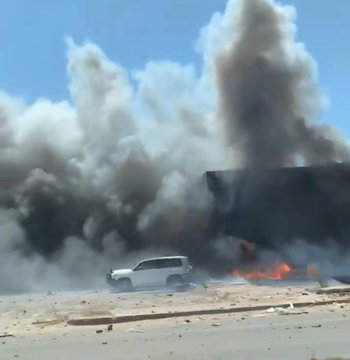Libya plans to shut down three of its biggest migration detention centres, the country's Interior Minister Fathi Bashagha has announced.
The centres in question are in Misrata, Tajoura and Khoms.
Organisations that monitor the situation in Libya fear these closures may lead to even more overcrowding in the remaining centres.
They also fear the possibility of many more migrants being left in the hands of traffickers.
The UN last month called for the dismantling of all detention centres for refugees in Libya, saying the facilities were not fit to house migrants.
It is believed there are 12 detention centres in western Libya nominally run by the UN-recognised government in Tripoli.
Libya's plans to close three of the centres follows criticism that migrants were being returned to Tajoura after it was hit by a deadly missile attack in July.
That "outrageous" attack could amount to a war crime, said the UN's Libya envoy Ghassan Salamé and top human rights official Michelle Bachelet.
But the UN Security Council failed to condemn it after the US declined to endorse a joint statement, according to diplomats.
Tajoura Detention Centre is close to the capital, Tripoli, where there is ongoing fighting between the UN-recognised government and the Benghazi-based Libyan National Army which has vowed to take over the city.

https://www.bbc.com/news/world-africa-49203792
The centres in question are in Misrata, Tajoura and Khoms.
Organisations that monitor the situation in Libya fear these closures may lead to even more overcrowding in the remaining centres.
They also fear the possibility of many more migrants being left in the hands of traffickers.
The UN last month called for the dismantling of all detention centres for refugees in Libya, saying the facilities were not fit to house migrants.
It is believed there are 12 detention centres in western Libya nominally run by the UN-recognised government in Tripoli.
Libya's plans to close three of the centres follows criticism that migrants were being returned to Tajoura after it was hit by a deadly missile attack in July.
That "outrageous" attack could amount to a war crime, said the UN's Libya envoy Ghassan Salamé and top human rights official Michelle Bachelet.
But the UN Security Council failed to condemn it after the US declined to endorse a joint statement, according to diplomats.
Tajoura Detention Centre is close to the capital, Tripoli, where there is ongoing fighting between the UN-recognised government and the Benghazi-based Libyan National Army which has vowed to take over the city.

https://www.bbc.com/news/world-africa-49203792








